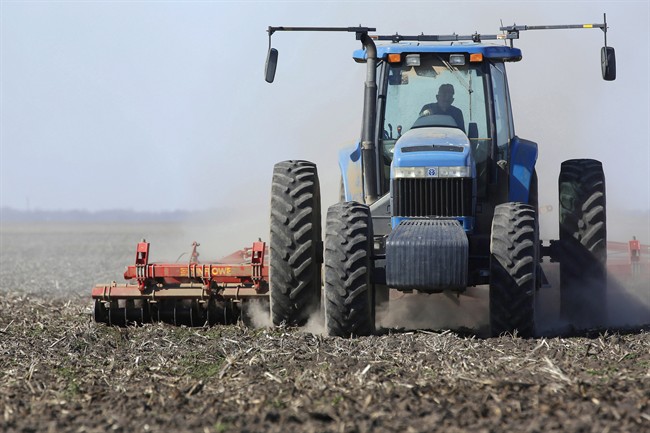The effects of the Co-op Refinery lockout has made its way to Saskatchewan farmers who are already dealing with a challenging spring seeding.

Earlier this week, Unifor Local 594 — who represents over 700 locked out Co-op Refinery workers — braced farmers for an increase in picket lines at rural fuel stations in the coming weeks.
“We are in the fight of our lives and careers,” said the union in an open letter.
“We are in a position where disrupting the flow of fuel to farmers during seeding is the only option we have to get back to work. We do not want to do that, but our options are limited when the company does not want a deal.”
The picket lines will be informational only with no one being blocked from getting fuel, said Kevin Bittman, president of Unifor Local 594. He said this has become a matter of exercising their constitutional rights to educate people about the dispute.
“We’re still locked out and we’re not allowed to go to work,” Bittman said. “We need to try to affect their business. To do that, sometimes it brings in third-party people.”
The union is hoping the picket lines will put pressure on Federated Co-operatives Ltd., which locked out 730 of its refinery workers on Dec. 5. But he doesn’t expect farmers to be OK with it.
- Life in the forest: How Stanley Park’s longest resident survived a changing landscape
- Bird flu risk to humans an ‘enormous concern,’ WHO says. Here’s what to know
- Roll Up To Win? Tim Hortons says $55K boat win email was ‘human error’
- Election interference worse than government admits, rights coalition says
“In reality, they probably won’t identify with us,” Bittman said. “They have a job to do and seeding and that’s where we understand from many of us being farm kids.”
Over 180 of the locked-out workers were raised on Saskatchewan farms, many in small communities, Bittman said.
Cardlock stations are a primary source of fuel for many producers. With spring seeding in Saskatchewan currently behind the five-year average, farmers were not pleased to hear picket lines could set them back even more.
“Farmers don’t want to be dragged in the middle of a labour dispute, and they sure don’t want the labour dispute to affect the middle of spring seeding,” said Todd Lewis, president of Agriculture Producers Association of Saskatchewan (APAS).
“Producers have had a real hard time over the last few years getting their crops in and off in time, and we sure don’t need to see any delays this spring.”
Lewis, who farms in Gray, Sask., says he’s hoping “cooler heads prevail.”
“Farmers will be very frustrated and disappointed if they have to delay due to this labour dispute.”
APAS has previously called on both parties — Co-op and Unifor — to work together.
In recent weeks, Local 594 has called on the government of Saskatchewan to impose binding arbitration to resolve the six-month lockout.
The government previously appointed a special mediator, but after 20 days of meetings, Co-op rejected the recommendations.
This led Co-op to present its last and final offer, with around 90 per cent of Local 594 members voting to reject it.
On March 25, Premier Scott Moe said during a press conference he would not call back legislature to impose binding arbitration.
“If that would be done it would be unprecedented is this province’s history, and I’m aware of very few cases, if any across Canada, where that has actually occurred,” Moe said. “This is a private-sector labour dispute that is occurring.”
The premier did state the Minister of Justice has reached out to both sides to have discussions “with what the next steps are.”
A division of Unifor represents some Global News employees.




Comments